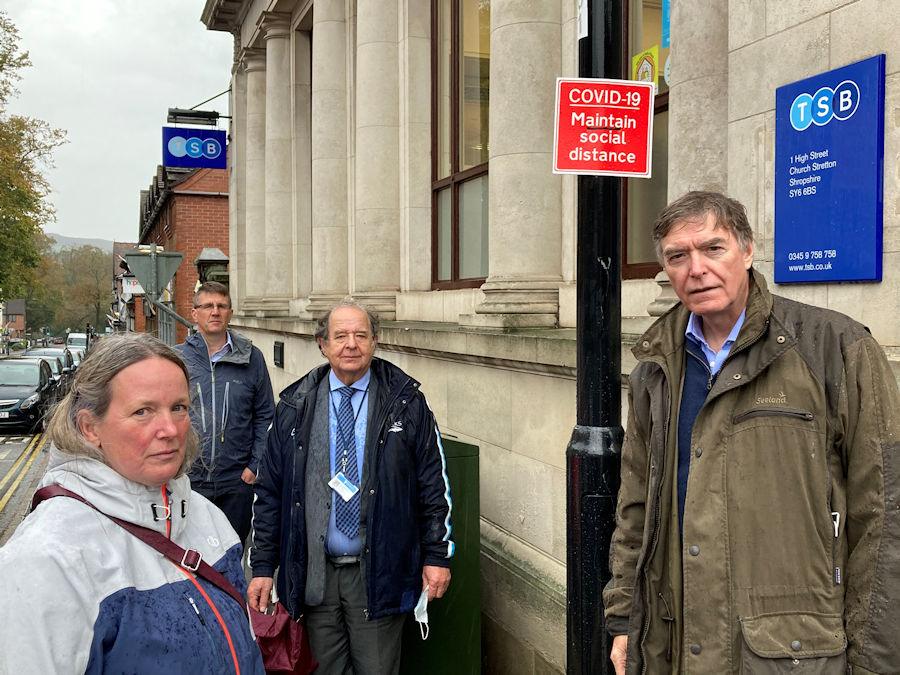Mr. Philip Dunne (Ludlow) (Con): I hope that the House will excuse the pun, but I have grave concerns about proposals to increase the powers of the nanny state. Her Majesty's Revenue and Customs has all-seeing powers over British taxpayers from the cradle to the grave, and now in the afterlife as well.
I support new clauses 1 and 8 as a way to restore sanity to families and professionals who have to deal with the immediate effects of the afterlife and sort out estates after people die. That is a very distressing time, and the Government's introduction last year of statutory instrument No. 2543-the Inheritance Tax (Delivery of Accounts) (Excepted Estates) Regulations 2004-made it immeasurably more distressing. As my hon. Friend the Member for Runnymede and Weybridge (Mr. Hammond) said, that order extended the requirement to file inheritance tax return form IT205-which he illustrated so eloquently-on all estates worth more than £5,000. Essentially, that requirement applies to every estate that requires probate.
That is a huge extension of bureaucratic form filling. Previously, one could file a nil return for inheritance tax unless one was within £30,000 of the inheritance tax threshold. Now the form will have to be filed in respect of all estates of over £5,000, and very detailed information on the value of assets will be sought. That information will include details of household and personal goods, and so will require the valuation of the furniture and jewellery, for instance, in an estate. All of that information has to be provided after full inquiry has been made.
Mr. Philip Hammond: I hope that my hon. Friend will forgive me for correcting him, but there was no requirement under the previous regime to file a nil return. People were required simply to swear a declaration that no tax was due.
Mr. Dunne: I am grateful for that correction, and my hon. Friend is right to say that it was possible for solicitors to swear an affidavit, although they could choose to file a nil return.
The requirement would be reasonable if there was a good prospect that additional revenue would be raised, but my hon. Friend the Member for Runnymede and Weybridge has noted already that most estates will be below the threshold and so will not qualify. As a result, the proposal has no revenue-raising potential.
What is the point of the proposed exhaustive form filling? How many people will be affected? My hon. Friend the Member for Runnymede and Weybridge has given some statistics, but I have some other data that might help Labour Members understand the implications of what is being proposed. About 535,000 people die each year. I learned that statistic in a debate on fallen livestock, when the subject of human death was touched on. Only 35,000 estates pay inheritance tax, so it does not take great mathematical skill to work out that, if all estates were to be affected by probate, a very significant number of people will be affected.
Presumably, a not insignificant number of forms will land in the HMRC's offices, and will need to be checked. Some errors might be detected where there is a possibility that an estate goes over the threshold, but it is most likely that the forms will sit and gather dust after being collected. Therefore, many people in the bureaucracy will do very depressing work to no purpose.
Stephen Hammond (Wimbledon) (Con): My hon. Friend mentions bureaucracy, but is not the problem even worse than he sets out? In Committee, the Paymaster General talked several times about the need for anti-avoidance measures and the need to close the tax gap. Would not the money spent on this fishing exercise be better spent on other measures that would close the tax gap?
Mr. Dunne: My hon. Friend makes a good point. The HMRC work force is being reduced, so we should look carefully at the tasks that people there are asked to undertake. I hope that the Minister will consider that point.
There is a wider point in respect of the extension of the inheritance tax net. House price inflation means that more and more people in my constituency are falling into its clutches, with estate values reaching the duty threshold despite the increase introduced in the Budget earlier this year. The Land Registry reports that the average price of properties sold in the south Shropshire district in the first quarter of the year was £208,000. In the Bridgnorth district, the average was £214,600. In the same period, the average price of detached houses-and that includes most of the village properties in my largely rural constituency-was £264,000 in south Shropshire and more than £307,000 in the Bridgnorth district council area. As a result, the average houseowner in my constituency is likely to be caught by the inheritance tax threshold.
Inheritance tax was originally intended to be a tax for the wealthy. It is increasingly hitting the average householder across the country. That is certainly the case in the Ludlow constituency. It is time that we looked at the tax as a whole, and stopped tinkering with extending it at the edges.
My final point has to do with the direction in which the Government are heading in respect of inheritance tax, which is in stark contrast to the direction that our major economic competitors are taking. I was in Washington DC last month and I discovered that legislation is passing through Congress and they are debating whether the American equivalent of inheritance tax-they call it death tax, rather starkly-should be scrapped or substantially reduced. If our major competitors are planning to scrap inheritance tax, we should think carefully about whether it is appropriate for us to extend the net. Instead, we should perhaps accept the increasingly competitive nature of the global economy in which we all live and consider scrapping inheritance tax.

